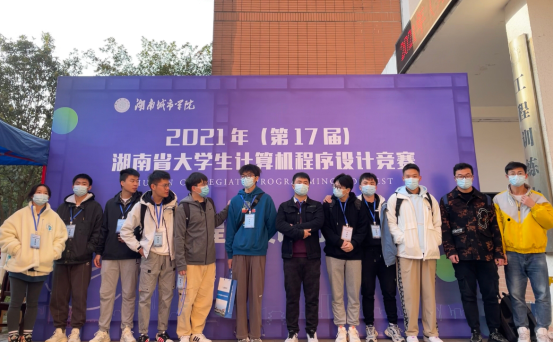
Recently, the 2021 (17th) Hunan Collegiate Programming Contest came to an end. Through competing, the student team, led by teacher Wang Ning, Hu Ying and Zhang Qiaolong, won one second prize (Zeng Yang, Meng Xinru and Liu Zhonghui) and two third prizes (Deng Xin, Lin Renze and Cui Delong; Liu Qingrui, Zhang Jun and Tan Yangyi) in the programming competition; and won one second prize (Zhu Jiaping, Xia Lijun and Liu Sixiao) and one third prize (Su Yanhong, Wu Yuanfei and Fang Shuai) in the application development competition.
The 17th Hunan Collegiate Programming Contest, an activity of college students’ subject contest designed for students of bachelor’s degree courses and students of associate degree courses, is hosted by the Education Department of Hunan Province, co-organized by Computer Education Professional Committee of Hunan Higher Education Association and undertaken by Hunan City University. It aims to improve the level of college students’ computer programming and application software development, cultivate college students’ innovation ability and teamwork spirit, promote the teaching reform of basic and professional computer courses in college, and strengthen the communication and learning among college students.
Hunan Collegiate Programming Contest is a large-scale computer skills competition in universities, which attracts many college students to participate and is highly recognized by the community. Our university attaches great importance to the cultivation of students’ comprehensive quality such as subject competition and hands-on ability, and provides support to this programming contest. The College of Computer and Communication promotes learning with competition, enlarges knowledge with learning and urges action with knowledge, so as to boost the development of teaching and the improvement of students’ comprehensive ability.
(Checked by Yang Yonghe, Wang Jiayi)

